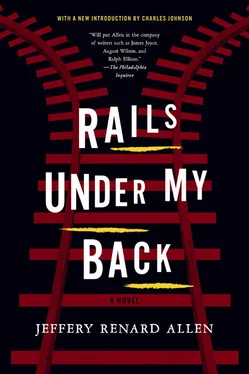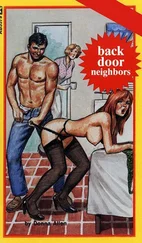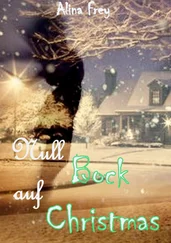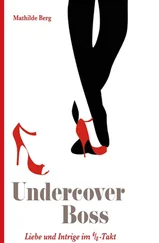Word, nigga poured acid into his eyes to win a bet ) brings the reader into such intimacy with the character Jesus that the third-person narration easily morphs into the second-person “you.” Allen eschews quotation marks for dialogue, a Joycean decision that creates a dream-like blurring of spoken speech and narrative description. His prose overflows with sentence fragments. He cuts from one scene to another — moving “in many directions at once, backwards and forwards in time, sideways and up and down”—without a narrative bridge, as films do. Allen’s contract with readers of
Rails demands that the reader work hard (because
he is working hard with every sentence, as John Edgar Wideman once said of his work, giving “every bit of himself, on every page, head and heart”), to take a moment to figure out on their own (as a journalist or detective would) the
who, what, why, when, how, and
where as the drama unfolds. A patient reader is usually rewarded with answers for the questions his story raises.
It is important to add that Allen’s ear for the uniqueness of black voices, in the South or a Midwestern city ( he fired up a square ), and their hilarity ( I don’t know but I been told, Artic pussy mighty cold ), is the most finely tuned that I have encountered in years, and recalls the exuberance of black speech in Ralph Ellison’s Invisible Man: “So Khaki Two was Keylo, legend in the flesh. Word, drove an old red ambulance with a bed (stretcher?) in the back. His ho buggy he called it. Say he never changed the sheets.” As someone raised in the Chicago area, I marvel at the way Allen has captured the riffing and signifying black male patois I heard all around me in Evanston when I was growing up in the 1950s and 60s. In his hands, language can range from Hatch busting a rhyme …
This is Genuine Draft
Master of all sorts of darts and arts and crafts
To John cracking up his Sunday school class with bawdy irreverence …
Good. Let us sing.
He’s got the whole world, in his hands …
— in his pants.
John, what did you say?
Just singin, Miss McShan.
He lyin, Lucifer said.
Nigga, shut up.
Both of you quit. Let us sing.
Raise me up
Take me higher.
Lift me out of the fire
Raise me to higher ground
So I can see
Turn the key.
— And my dick don’t get too tight to pee.
John, what did you say?
And then to descriptive set pieces with a lyricism as beautiful as any to be found in our literature …
Her first city winter. Snow. Pretty when it first fell. White and clean enough to eat, then later, gray and muddy with footprints or tire tracks. Snow coating the windows of cars, but the apartment windows heated from the warmth pulsing inside, free of frost, an occasional collar of snow on a ledge…. And cars making that washing sound you hear in rain or snow, beneath the motor’s hum the sound of water spilled from a pail. Then the first killing frost. The frozen steel of subway and apartment pipes. The asthmatic breathing of the radiator.
Everywhere in this rich world Jeff Allen has created we find “distance-seeking trains” and “the complicated network of trains and lines: subway and Elevated, A train and B train, express and local, rush hour, the Englewood line, Howard line, Jackson Park line, Evanston line, Ravenswood line. On and on.” Like the Chicago subway so important at the beginning of Richard Wright’s The Outsider, these ubiquitous rails in Allen’s story are, at least on one level, a metaphor for modernity, perhaps for black America at mid-twentieth-century, a trope for escape, travel, transitions, and the means for black migrations. They appear as “a fleeting locomotive,” on boys as “the skinny rails of their legs,” and significantly in Hatch’s reflections: “he’d read that humans have lead in their bloodstream, had believed the tracks might snatch him— call him, a steel mother commanding the child inside after a day of play — like a magnet. Now he knew, the speed, the momentum could suck you up.”
The mysteries and majestic language in Rails Under My Back will, I believe, “suck you up.” And this novel will answer the question “How is great measured?” with every page of its unique literary performance.
Dr. Charles Johnson is a novelist, essayist, literary scholar, philosopher, cartoonist, short story writer, a MacArthur fellow, winner of the 1990 National Book Award for his novel Middle Passage, and recipient of an American Academy of Arts and Letters Award for Literature.

1. Michael Noll, “An Interview with Jeffery Renard Allen,” Read to Write Stories http://readtowritestories.com/2014/12/26/an-interview-with-jeffrey-renard-allen/
LONG BEFORE JESUS ENTERED THE WORLD, blades of southern grass sliced up the soles of his grandmother’s feet. Her blood leaped from the danger, drew back into the farthest reaches of her heart, and the roots of her soul pulled away from the sharp earth which had nurtured her. But nothing escapes the laws of gravity. We martyr to motion. In step with the flowing sweep of her garments, an undercurrent of rhythm, she cut the final strings of attachment, her children, and on a rich spring day cut a red path to New Mexico — what business had a nigger there; New Mexicans had yet to invent the word — for a man eternally bound to a rakish fedora, his sweet face like a mask beneath it, pinstripe suit, diamond horseshoe tiepin, and two-toned patent-leather shoes. Drawn by the power of nostalgia— Hold infinity in the palm of your hand and eternity in an hour —she swept back two years later without a word about her lover, the father of R.L., her oldest child. A decade later he would be thrown through the windshield of his sparkling green (red?) Edsel (Eldorado?) — the squeal before the thud, the skid after — his decapitated body slipping the surly bonds of earth, sailing kitelike over a California highway, arcing over and beyond a thicket of treetops, to touch the face of God. Jesus was convinced that her exodus had strangled any impulse her surviving children — his mother and aunt — had to get close to her, and had ripped open his life, for an eye, like a shattered mirror, multiplies the images of its sorrow. The years only deepened the sorrow his family had in common. Even a hatred like hot ice could not halt destiny.
Jesus thought he could never recover from his grandmother’s betrayal. While his mother and aunt had long purged their thoughts and feelings of the act — it escaping through the back of their heads, into space — it continued to haunt him, a wallet photograph that he carried everywhere. He moved with a sort of amazement in the world, anger fueling the furnace of his heart. With ceremonial rigidity, each day he wore red, symbol of his unflagging fury.
He leaned over and spit. The saliva held and gleamed, suspended, rust-flecked, then curved down to the pavement. Crashed, sizzled, and cooled. A red coin. He leaned over to pick it up, but the coin refused his touch. Sirens sailed into the sky, a spiral of red sound. He drew himself erect. A strip of white asphalt stretched hot before him. He walked. Only his brain moved. Tall earth-rooted wrought-iron fences hovered before a cluster of houses. And beyond the fences, black and green rhythm of trees. Trees full of birds, plentiful as leaves. The vapor-kissed spires and steeples of North Park. The sky in fanning torches and soaring flames. And heavy white clouds hovering, flying saucers. The street opened into a broader one, the space between two massive rows of skyscrapers black with a continuous throng, two busy streams of ants. He walked with long scissors stride for Lawrence Street, where he would catch the train to South Lincoln. The cradle of the week, the sunny street filled with competitive radios, anxious engines, car horns, hawking of wares, footsteps, and conversation — disembodied voices — a kiss blown from the lips of the square, floating, rising, and hanging above it. The sidewalk steamed with city sprinklers pulsing wet rhythm. Jesus sang:
Читать дальше













